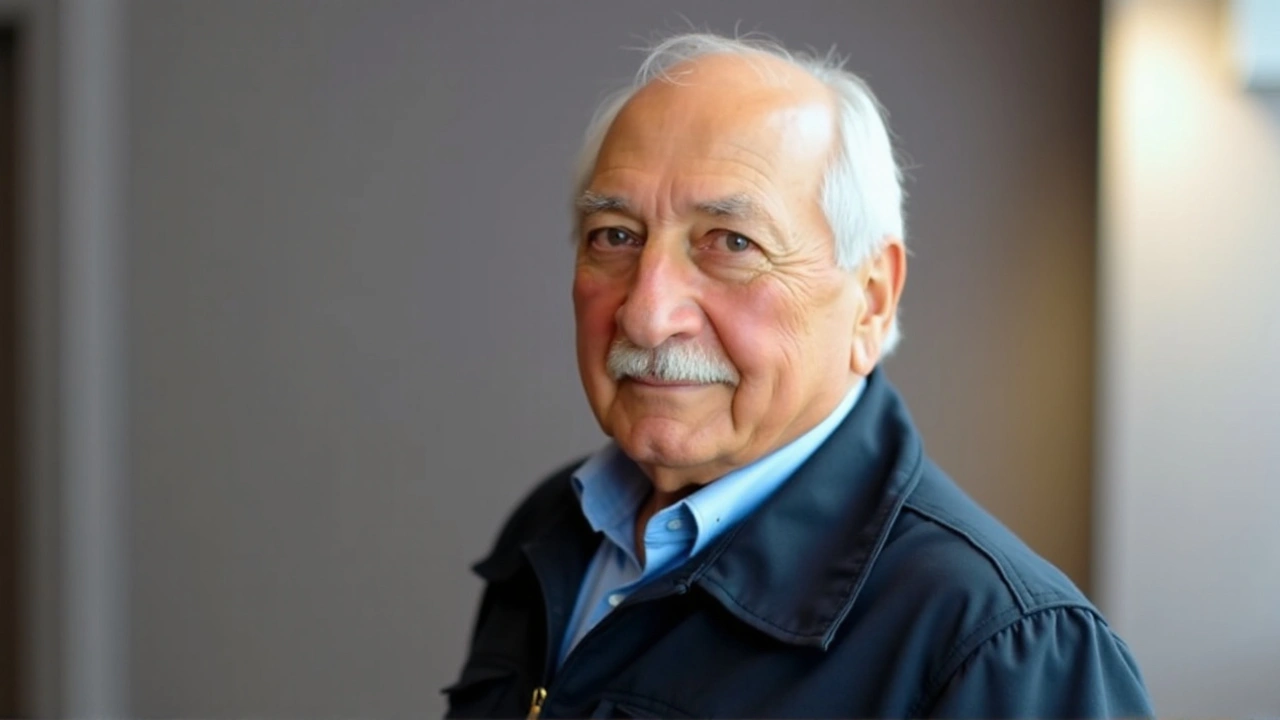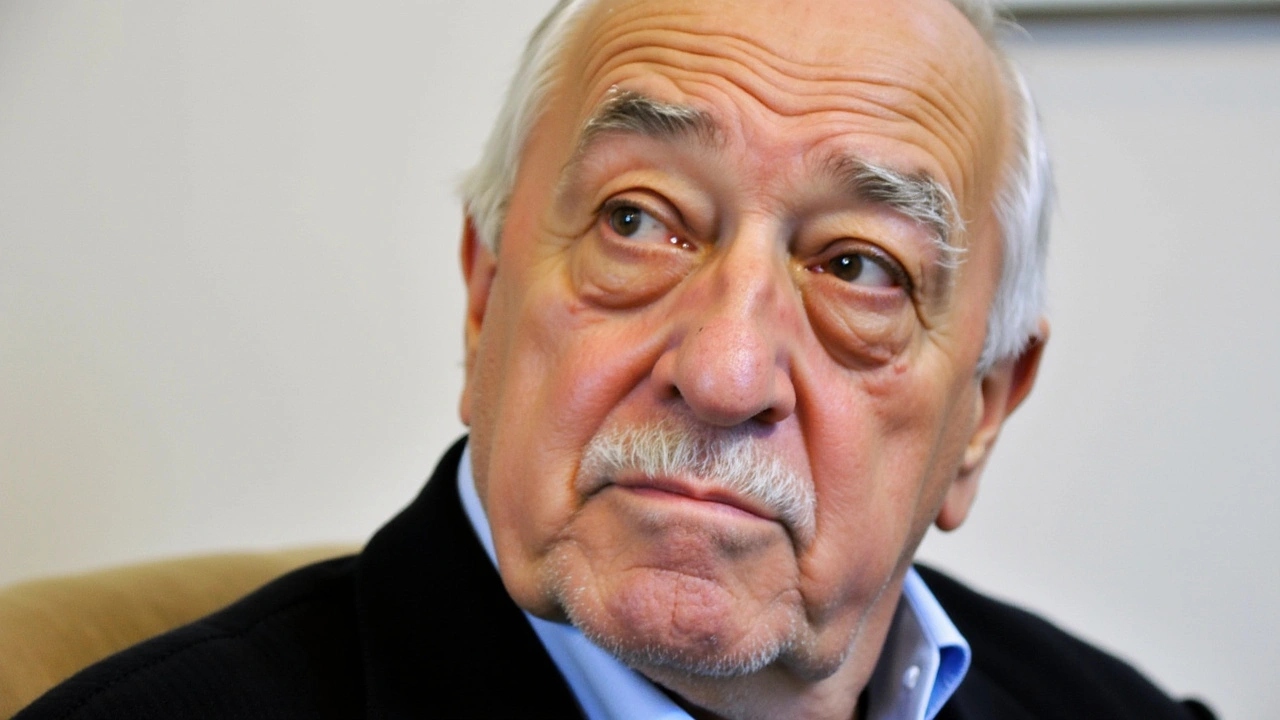The Death of Fethullah Gulen: Impact on Turkish Politics and Beyond
Fethullah Gulen, a prominent and controversial figure in Turkish and international politics, has died at the age of 83. Gulen, a cleric who lived in self-imposed exile in the United States since 1999, played a significant role in Turkey's political affairs, albeit from a distance. His death on October 20, 2024, in his home in Pennsylvania, was confirmed by his foundation, the Alliance for Shared Values, which noted that he 'passed away peacefully.' This event marks a noteworthy point in contemporary Turkish history, as Gulen was a central figure in the tumultuous political landscape of Turkey, even more so after being implicated in the failed 2016 coup attempt.
Who Was Fethullah Gulen?
Born in Turkey in 1941, Fethullah Gulen emerged as a spiritual leader and educator, advocating for a modern interpretation of Islam that embraced science and interfaith dialogue while promoting education. He founded a global movement known as the Hizmet Movement, which supported the establishment of schools and cultural institutions around the world. The movement grew substantially, gaining a significant presence and establishing numerous institutions across various countries, reflecting Gulen's influence.
However, his relationship with Turkey took a drastic turn, as his growing influence came into conflict with the rising power of Recep Tayyip Erdogan, who would later become Turkey's president. Once allies, their ideological differences eventually resulted in a bitter rivalry. The political climate in Turkey drastically shifted with Gulen becoming the primary accused mastermind behind the 2016 coup attempt. This accusation marked a turning point in his life and his movements' perceptions both in Turkey and internationally.
The 2016 Coup Attempt Allegations
On July 15, 2016, a violent coup attempt unfolded in Turkey, aimed at overthrowing Erdogan's government. The coup left over 250 people dead and many more injured, resulting in widespread arrests and purges within the military and civilian sectors. The Turkish government promptly accused Gulen and his followers of orchestrating the coup through an extensive network within the Turkish state, a claim Gulen vehemently denied. Despite the accusations, the US government repeatedly stated a lack of concrete evidence preventing any extradition of Gulen to Turkey.
Gulen's denial of involvement didn't hinder the Turkish government's resolve, which heightened its efforts to dismantle his network within Turkey. The coup attempt's aftermath led to thousands being arrested or discharged from public service, and over one hundred thousand people were detained for alleged connections to the Gulen movement. These actions drew international scrutiny, with human rights organizations and several governments expressing concerns over the scale of Erdogan's response.
Gulen's Influence and Legacy
Throughout his life, Fethullah Gulen maintained a dual image - viewed by some as a reformist educator and by others as a destabilizing force. His teachings and writings have resonated globally, advocating for a synthesis of modernity and Islamic values. The network of schools and charities founded under his movement has been recognized for promoting educational opportunities and interfaith dialogue. However, within Turkey, his legacy is contentious, with many viewing him as a threat to national security and state stability due to the government's narrative.
Despite living in the US for over two decades, Gulen's presence loomed large over Turkish politics. His movement, though weakened, continued to exist through volunteers and sympathizers worldwide. The accusations against him and the political drama that ensued have left an indelible mark on Turkish society, polarizing communities and influencing the nation's political discourse. The schism between Erdogan and Gulen altered Turkey's political path significantly, with Erdogan using the coup attempt as justification for consolidating his power.
The International Dimension
The diplomatic standoff between the US and Turkey over Gulen's extradition request marked a period of strained relations between the two countries. The US's refusal to extradite him without substantial evidence led to repeated tensions, with Turkey viewing this as an affront to its sovereignty and justice. US-Turkey relations experienced substantial strain during this time, affecting broader geopolitical interactions and alliances.
While the legal and diplomatic battles ensued, Gulen's death could potentially signal a new chapter in US-Turkey relations. However, it is yet to be seen whether his passing will ease the socio-political landscape or if his legacy will continue to stir debate and polarization within Turkey. The ramifications of Gulen's death could lead to a reassessment of diplomatic ties, especially considering the historical context of his allegations and the magnitude of his influence.

Conclusion: Looking Ahead
With Fethullah Gulen's death, a contentious chapter in Turkish political history perhaps finds a form of closure, albeit a complex one. His influence, both in life and posthumously, continues to affect Turkish society, its politics, and its international relations. The future will reveal the extent to which his ideas and the controversies surrounding him will persist in shaping Turkey’s internal and external political dynamics. As Turkey navigates this new phase, it remains a vigilant point of interest in global political discussions, influenced by the figures like Gulen who have left indelible marks on its narrative.







Comments
naresh g
Fethullah Gulen’s movement built over 1,000 schools worldwide-seriously, that’s more than most governments manage. And yet, the moment he fell out of favor with Erdogan, suddenly every single one became a ‘terrorist network’? The math doesn’t add up. I’ve met teachers from those schools; they were just passionate about education. The purge felt less like justice and more like a power grab dressed in religious rhetoric.
Brajesh Yadav
This is the most dramatic thing to happen since the Ottoman Empire collapsed 😭🔥 Turkey’s entire identity is now built on hating one old man who lived in Pennsylvania. I mean… what even is this? They’re still calling him a ‘coup mastermind’ after he’s DEAD?? The drama is unreal. Someone get me a popcorn machine.
Govind Gupta
There’s something quietly tragic about how a man who spent decades promoting dialogue, tolerance, and education ended up being reduced to a political boogeyman. His schools taught kids to think critically-not to overthrow governments. The irony is thick enough to spread on toast. I wonder if anyone in Ankara ever stopped to ask whether the real threat was the erosion of pluralism, not Gulen himself.
tushar singh
Honestly? I hope his passing brings some peace-not just to him, but to the families caught in the crossfire. People lost jobs, kids lost schools, friendships shattered over accusations. Maybe now, with him gone, Turkey can start healing without blaming ghosts. We all deserve to move forward without carrying someone else’s war.
Robert Shealtiel
The US knew he was behind it they just didn’t want to admit it
Marrissa Davis
I’m from Philly and I’ve seen his neighborhood. It’s quiet. Like, boring quiet. No secret bunkers, no midnight meetings. Just a guy reading books and writing letters. The idea that he ran a coup from there feels like a cartoon. I mean, did he do it via Zoom?
Sean Brison
Gulen’s schools were actually doing great work in places like Tajikistan and Kenya. I taught with one of their alumni in rural Senegal-he was the most disciplined, curious student I ever had. The fact that Turkey now bans any mention of him is sad. It’s not about ideology anymore, it’s about erasing history. And that’s the real danger.
Norm Rockwell
Let me tell you something they don’t want you to know. Gulen didn’t just ‘support’ the coup-he was part of a secret global network with the CIA, Mossad, and the Vatican. The 2016 attempt was a false flag to justify Erdogan’s authoritarian turn. The real target? Turkey’s oil pipelines. And now he’s dead? Too convenient. Look at the timing. The US just signed a new deal with Azerbaijan. Coincidence? I think not. The deep state is cleaning house. Watch the news. The next ‘coup’ is already being staged.